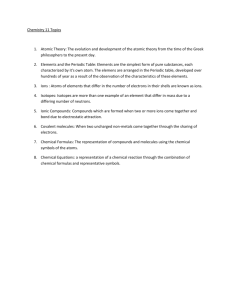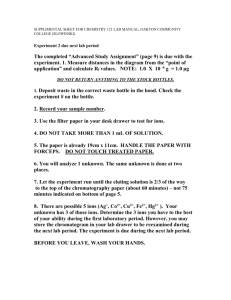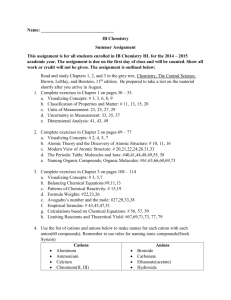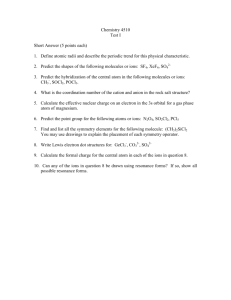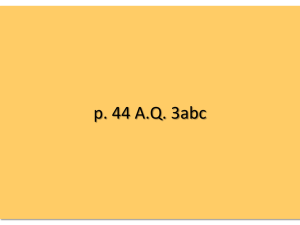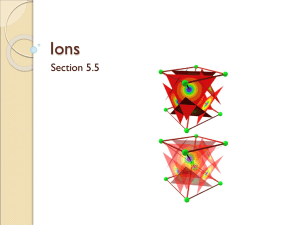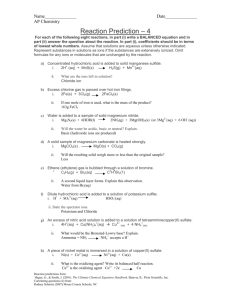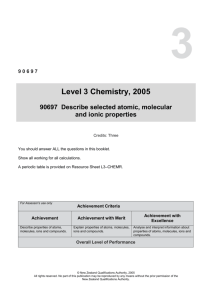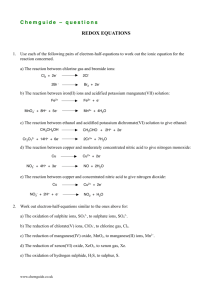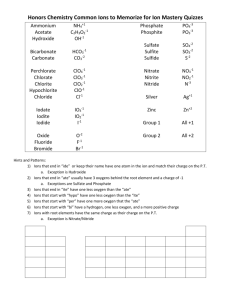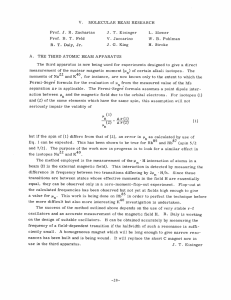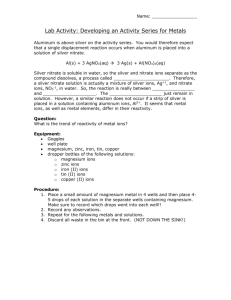Atoms, ions and ionic compounds. Sodium. Atomic number 11. Mass
advertisement
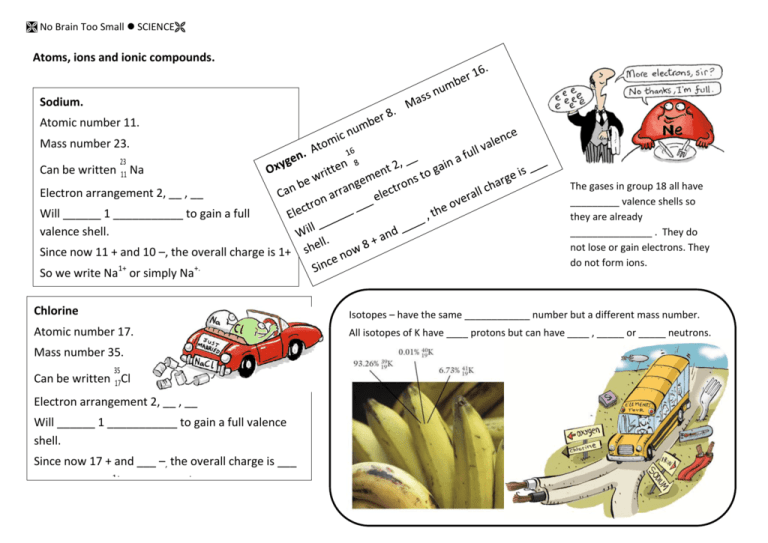
No Brain Too Small SCIENCE Atoms, ions and ionic compounds. Sodium. Atomic number 11. Mass number 23. Can be written 23 11 Na Electron arrangement 2, __ , __ Will ______ 1 ___________ to gain a full valence shell. Since now 11 + and 10 –, the overall charge is 1+ So we write Na1+ or simply Na+. The gases in group 18 all have _________ valence shells so they are already _______________ . They do not lose or gain electrons. They do not form ions. Chlorine Isotopes – have the same ____________ number but a different mass number. Atomic number 17. All isotopes of K have ____ protons but can have ____ , _____ or _____ neutrons. Mass number 35. 35 Can be written 17Cl Electron arrangement 2, __ , __ Will ______ 1 ___________ to gain a full valence shell. Since now 17 + and ___ –, the overall charge is ___ So we write Na1+ or simply Na+. No Brain Too Small SCIENCE Table of ions *polyatomic ions – put in ( ) if you use more than once in a formula * * * * * * Elements in the periodic table are listed in order of increasing ___________ number. Each atom has one more _____________ than the element before it. The rows are called ____________ and the columns are called ___________ . Most elements are _______________ and those the right of the “stepped line” are ____-______________ . The element in group 13 period 3 is _______. NH4+ ammonium OH- hydroxide NO3- nitrate HCO3- hydrogen carbonate CO32- carbonate SO42- sulfate Iron(II) sulfide is ________ . The (II) after iron tells you it is the Fe __+ ion. Iron(III) nitrate has the formula ________ . The element in group 2 period 4 is _______. IONS. Atomic number = # of _____________ Mass number = # of ____ plus _____ Protons are ____, neutrons are neutrally charged and _____________ are negatively charged. Most of the mass of an atom depends on the ___ plus ___ since the ___ are very, very light. Electrons fill up the shells 2, 8, 8 etc Are charged _______________ formed when atoms _________ or gain ____________ (s) to achieve a full ______________ shell which is a _____________ arrangement. Metals form ___ ions; non-metals form ___ ions.
